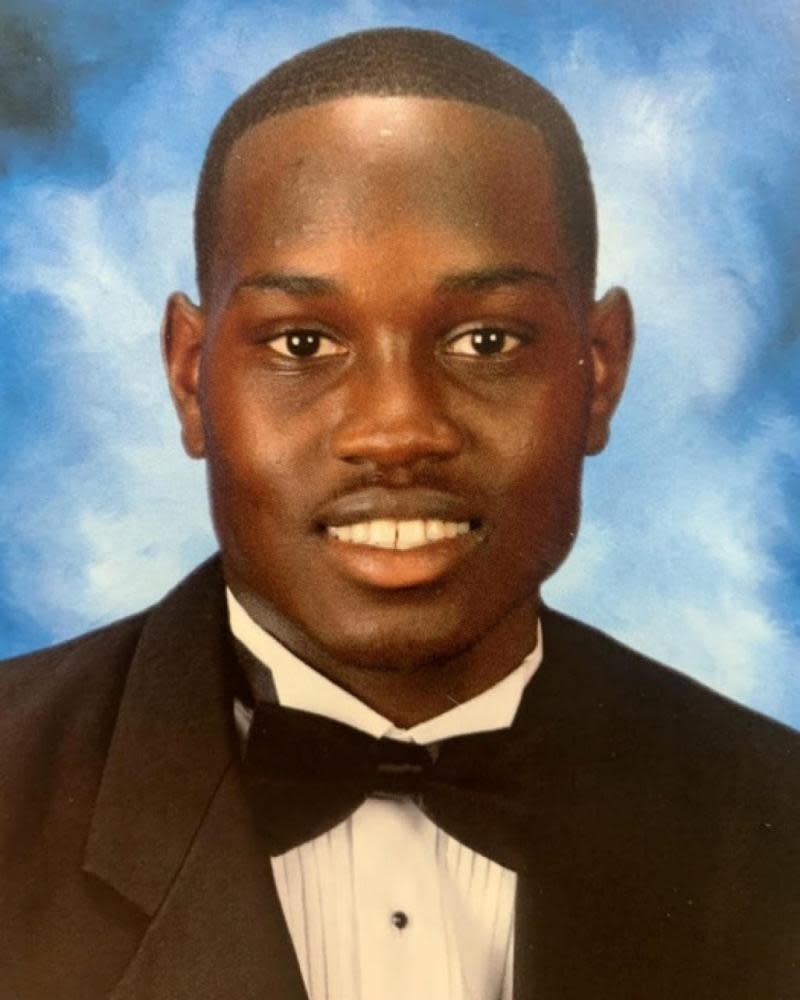‘A great embarrassment’: records offer insight into Ahmaud Arbery suspect

Gregory McMichael, the white retired law enforcement officer who helped chase down and kill Ahmaud Arbery, an unarmed 25-year-old African American man, failed to complete sufficient basic law enforcement training for years, a deficiency that led to him losing his power of arrest.
McMichael, who worked as an investigator in the Brunswick judicial circuit district attorney’s office from 1995 to 2019, lost his power of arrest in January 2006 for failing to complete the required 20 hours of training the previous year, according to personnel records obtained by the Guardian.
He continued to be deficient in his training for the years that followed and didn’t get the waiver required to reinstate his power of arrest authority. Some of the training McMichael lacked included required courses on use of force and firearms.
The personnel records, which have been reported by local media, come to light as McMichael faces murder charges for chasing down Arbery, who was jogging through a residential neighborhood. McMichael and his son Travis claimed they believed Arbery looked like a suspect in a string of neighborhood break-ins.
The records also shed light on McMichael’s close relationship with Jackie Johnson, the district attorney for the Brunswick judicial circuit, who recused herself from the case and is now subject to a state investigation of how the case was handled.

The pair were eventually charged after state investigators were brought on to the case following the emergence of video showing Arbery’s death.
Johnson’s office declined to comment.
“We are confident that any investigation will ultimately show that our office acted appropriately under the circumstances,” her office said in a statement. “There is a public misconception about this case due to false allegations against our office by those with an agenda.”
In Georgia, law enforcement officers are required to complete 20 hours of training each year, including certain mandated courses, to maintain their power of arrest – a critical authorization that gives officers legal authority to do essential law enforcement functions.
“Without those powers of arrest, you have no further or no additional power than any other citizen has,” said Mike Ayers, the executive director of the Georgia Peace Officers Standards and Training council (Post), which oversees the certification.
But McMichael didn’t alert his supervisors to the deficiency until 2014, according to the records. The problem was so severe, Post considered suspending him indefinitely. He was stripped of his gun and departmental vehicle while he applied to the state for a waiver.
In an April 2014 memo to Johnson, Mark Melton, another investigator in her office, warned that because McMichael lost his power of arrest “any improper actions by Greg would fall on Greg, the district attorney’s office, and you personally.”
McMichael ultimately had his certification restored. But Johnson, the district attorney, wrote to the agency responsible for overseeing the certification process that the episode was “a great embarrassment to me and Investigator McMichael”.
“It has negatively impacted my office and I have taken measures to ensure that this doesn’t happen,” Johnson added, stating she was grateful that the state’s law enforcement standards and training [Post] director had reinstated the license after she met him in person to lobby on McMichael’s behalf.
In February 2019, months before he retired, McMichael again lost his certification from Post for failing to complete the required training in 2018. Weeks later, his supervisors reassigned him to work as a staff liaison in the Camden county district attorney’s office and noted that he would “not engage in any activity that would be construed as being law enforcement in nature”. His supervisors noted he would not carry a badge or firearm in his new role.

The records highlight the multiple medical and personal issues that McMichael cited for missing various training programs. In a letter authored by McMichael to explain his absences between 2005 and 2010 and request a training exemption, he states that in 2006, following a heart attack, he experienced clinical depression.
“The depression made me unable at times to focus on important tasks … I immediately sought treatment, which continues to this day,” he writes.
He writes that in 2009 he and his wife filed for bankruptcy and later that year he experienced a second heart attack: “I believe that this heart attack was brought on in large part by the stress that I was experiencing both at home and at work.”
Related: 'They lynched him': Ahmaud Arbery's father on the killing of his son
McMichael’s personnel file, which stretches back to the year he was employed by the Brunswick district attorney’s office, also gives insights into his general performance as an employee and other training he received on the job.
For example, the records indicate McMichael completed only one training course in the use of de-escalation tactics, but completed four courses devoted to “understanding Islamist terrorism” and another on “introduction to terrorism”.
His annual reviews from superiors present a mixed track record and his overall performance is never rated above “good”. One November 2000 review notes: “Needs to improve his organization and prioritization of his workload.” Multiple reports describe a lack of organizational skills.

